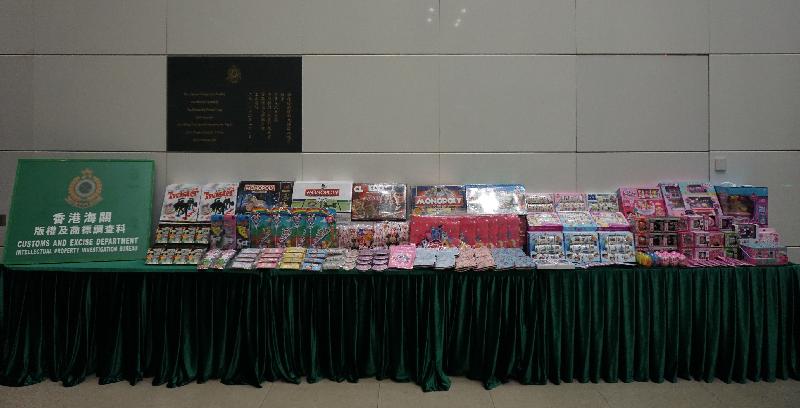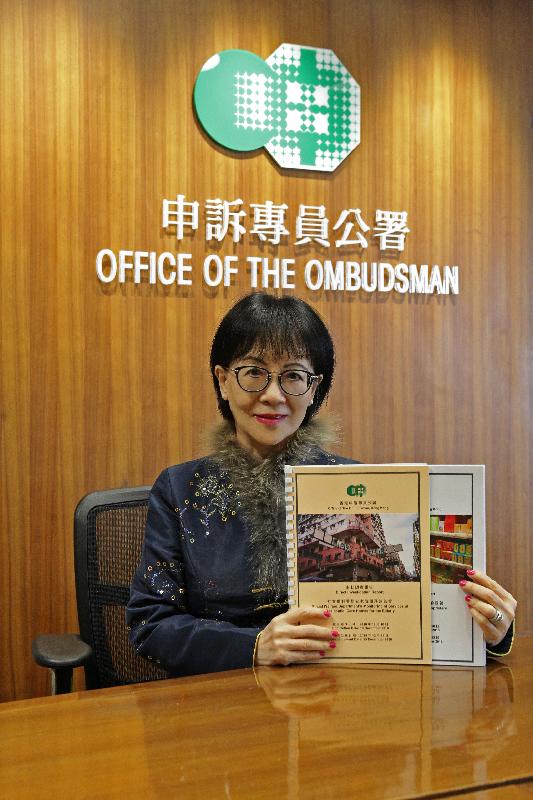The Centre for Health Protection (CHP) of the Department of Health today (December 13) reminded the public to practise strict hand, personal, food and environmental hygiene to guard against some common and travel-related infectious diseases in the coming Christmas and New Year holidays.
A. Seasonal influenza
The latest surveillance data revealed that although the overall activity of seasonal influenza (SI) in Hong Kong is still below the baseline level, it has been increasing in the past few weeks. Among the respiratory specimens received by the CHP's Public Health Laboratory Services Branch, the percentage that tested positive for influenza has increased from 3.35 per cent in the week ending November 17 to 6.25 per cent last week.
Globally, influenza activity also started to increase in the temperate zone of the northern hemisphere. The 2018/19 winter influenza season has already started in Canada. Influenza activity in the United States, the United Kingdom and Mainland China has also been increasing recently.
"Based on past epidemiological patterns, we expect that the winter influenza season may arrive soon locally. We appeal to the public, particularly children, the elderly and those with underlying illnesses, to get vaccinated early to better protect themselves against SI," a spokesman for the CHP said.
The public may visit the CHP's webpage on SI for more information.
B. Hand, foot and mouth disease
Hand, foot and mouth disease (HFMD) occurs throughout the year. While the disease activity is usually higher from May to July, a smaller peak may also occur from October to December.
"The latest surveillance data showed that the activity of HFMD in Hong Kong remains at a high level. So far, 63 cases of Enterovirus 71 (EV71) infection were recorded in 2018 with four of them being severe cases. As young children are more susceptible, parents should stay alert to their health. Institutional outbreaks may occur where HFMD can easily spread among young children with close contact," the spokesman said.
To prevent HFMD, members of the public, and especially the management of institutions, should maintain good personal and environmental hygiene. The public may visit the CHP's webpages on HFMD and EV 71 infection and Public Health Advice for Play Facilities for more information.
C. Acute gastroenteritis and food poisoning
Outbreaks of acute gastroenteritis (AGE) usually occur more frequently in winter. In the festive season, food and environmental hygiene are the keys to preventing AGE and food poisoning while consuming party food or hot pot in gatherings.
The public should consume thoroughly washed and cooked food. For shellfish, the shells should be well scrubbed and the internal organs removed before consumption. Never use raw eggs as a dipping sauce. Use different chopsticks to handle raw and cooked food to avoid cross-contamination. For more information on food safety tips, please visit the webpage of the Food and Environmental Hygiene Department (FEHD)'s Centre for Food Safety. The public may also visit the CHP's webpage on viral gastroenteritis for more information.
D. Travel-related diseases
From November 30 to yesterday (December 12), the CHP recorded one imported dengue fever (DF) case. The patient had been to Thailand during the incubation period.
As of yesterday, 157 cases had been confirmed this year, of which 29 were local cases and 128 were imported cases. The imported cases were mainly from Thailand (35), Mainland China (29) and the Philippines (21).
DF remains endemic in some areas in Asia and beyond. The latest figures for 2018 revealed that 80 065 cases had been recorded in Thailand, 2 946 in Singapore (since December 31, 2017) and 185 in Japan. In Taiwan, 183 local cases have been recorded in 2018. In the Americas, the latest figures indicated that 228 042 and 72 197 cases have been filed in Brazil and Mexico respectively in 2018.
To prevent mosquito-borne diseases, travellers should wear loose, light-coloured, long-sleeved tops and trousers and apply insect repellent containing DEET to clothing or exposed parts of the body. Travellers returning from areas affected by DF and Zika virus infection should apply insect repellent for 14 days or at least 21 days respectively upon arrival in Hong Kong.
The public may visit the DF pages of the CHP and its Travel Health Service, the latest Travel Health News, tips for using insect repellents and the FEHD's Guidebook on Control and Prevention of Mosquito Breeding for more information.
Hong Kong achieved measles elimination in 2016 and the annual reported number of measles cases has remained at a very low level in the past few years. The 12-month measles incidence from December 2017 to November 2018 locally was about 1.8 cases per million population. However, measles remains endemic in many places around the world and the incidence levels in these places are much higher than that of Hong Kong.
In Asia, according to data from the World Health Organization (WHO) (as of November 9), the 12-month measles incidence (cases per million population) had reached 118.5, 80.4, 16.5, 13.3 and 8.4 in the Philippines, Malaysia, Thailand, Indonesia and Singapore respectively. In Europe, measles cases continued to be reported in many countries, with the highest 12-month measles incidence from October 2017 to September 2018 (cases per million population) in Greece (283.1), Romania (92.7), Slovakia (86.7), Italy (42.9), France (41.4) and the United Kingdom (15.5).
Regarding rubella cases, the outbreak of rubella in Japan that started in September this year is ongoing. According to the information from the health authority of Japan, a total of 2 454 rubella cases have been recorded in 2018 (as of December 5), as compared to 93, 126 and 163 cases recorded in 2017, 2016 and 2015 respectively. The weekly number of cases was above 100 in the past 13 weeks. The cumulative incidence (cases per million population) in 2018 was 19.3 with the highest incidence rates in Tokyo (61.7), Chiba (53.7) and Kanagawa (37.5), which were much higher than the annualised incidence of 1.2 cases per million population in Hong Kong (as of December 5).
"Vaccination is the most effective way to prevent measles and rubella. Members of the public who are planning to travel to places with high incidence or outbreaks of measles or rubella should review their vaccination history and past medical history, especially people born outside Hong Kong who might not have received measles or rubella vaccination during childhood. Those with incomplete vaccination, unknown vaccination history or unknown immunity against measles or rubella are urged to consult their doctor for advice on vaccination at least two weeks before departure," the spokesman said.
"Pregnant women and women preparing for pregnancy who are not immune to measles or rubella as well as children aged under 1 year who are not due for the first dose of the measles, mumps and rubella combined vaccine under the Hong Kong Childhood Immunisation Programme are advised not to travel to places with outbreaks of measles or rubella," the spokesman added.
For more information on measles and rubella, the public may visit the CHP's measles page and rubella page. They can also visit the Travel Health Service's website for the latest travel health advice.
- Middle East Respiratory Syndrome
To prevent Middle East Respiratory Syndrome (MERS), travellers in the Middle East should avoid going to farms, barns or markets with camels, avoid contact with sick persons and animals, especially camels, avoid consuming raw or undercooked animal products such as milk and meat, and avoid unnecessary visits to healthcare facilities. The CHP strongly advises travel agents organising tours to the Middle East to abstain from arranging camel rides and activities involving direct contact with camels, which are known risk factors for acquiring MERS Coronavirus.
The public may visit the MERS pages of the CHP and its Travel Health Service, MERS statistics in affected areas, the CHP's Facebook Page and YouTube Channel, and the WHO's latest news for more information and health advice. Tour leaders and tour guides operating overseas tours are advised to refer to the CHP's health advice on MERS.

